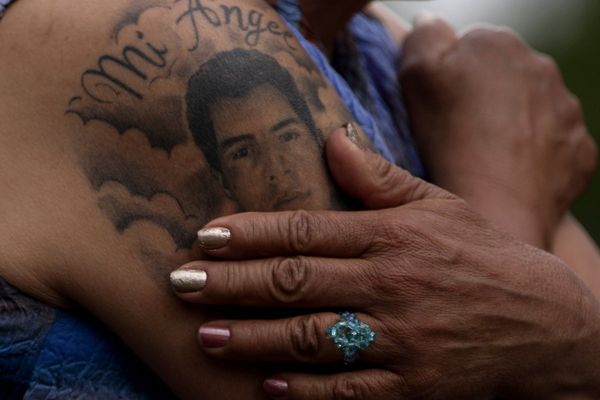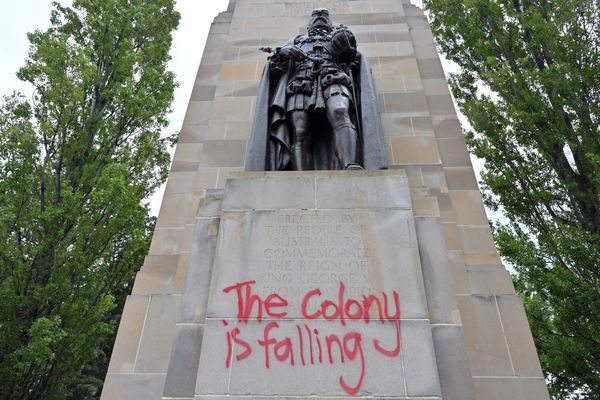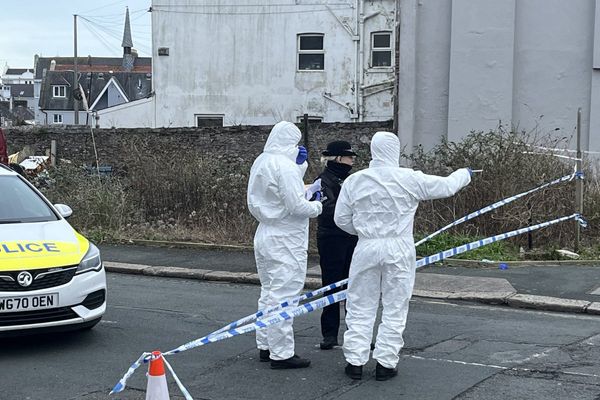One of the trained assassins wanted for poisoning Sergei Skripal is a decorated colonel in Russian military intelligence given the country's highest award by Vladimir Putin.
The real identity of one of the wanted men in the nerve agent attack - named by counter-terrorism police as Ruslan Boshirov - can be disclosed as Colonel Anatoliy Vladimirovich Chepiga.
The 39-year-old, who has served in wars in Chechnya and Ukraine, was made a Hero of the Russian Federation by decree of the President in 2014 in a ceremony shrouded in secrecy.
/arc-anglerfish-syd-prod-nzme.s3.amazonaws.com/public/MBTVSEVTQ5CZNF5H4OO6PEZKFM.jpg)
The disclosure, uncovered by investigative journalist organisation Bellingcat in conjunction with the Telegraph, exposes as lies Mr Putin's claims that the Skripals' would-be killers were innocent "civilians".
Chepiga, posing as Boshirov, and a second man identified as Alexander Petrov, have insisted they were on holiday in Salisbury and had no connection with the attack, using weapons-grade Novichok nerve agent.
The true identity of his accomplice Alexander Petrov remains unclear, but The Telegraph has established that he was travelling under his real first name and had only changed his surname to an alias.
Counter-terrorism police and the security services are understood to know his real name.
A former senior Russian military officer said Col Chepiga's high rank and experience strongly suggested that "the job was ordered at the highest level".
The source claimed an attempted assassination of less importance would have been carried out by a lower ranking officer.
European arrest warrants and Interpol red notices have been issued for the pair, who are accused of the murder of Dawn Sturgess, a local woman inadvertently poisoned by a discarded Novichok bottle, and the attempted murder of Col Skripal, 67, and his daughter Yulia, 33.
Both men - under the aliases Boshirov and Petrov - have been charged with the poisoning of the Skripals by the Crown Prosecution Service.
/arc-anglerfish-syd-prod-nzme.s3.amazonaws.com/public/S3KW4W7RGNGLPCG7UBSDWO2VVY.jpg)
After Scotland Yard released its evidence - including CCTV showing the men close to Col Skripal's home on the day he was poisoned - the pair appeared on Russia TV, on the order of Mr Putin, to claim that they worked in the fitness industry and their sole reason for visiting the UK was to see the historic sites of "wonderful" Salisbury.
Theresa May had publicly accused them of being members of the GRU. It can now be revealed that Col Chepiga has been fighting in an elite special forces unit - Spetsnaz - under the command of the GRU for 17 years and working undercover for at least nine years.
He has been given more than 20 awards and a Hero of the Russian Federation medal, though, unlike most of the other recipients, there is little public information available about Col Chepiga. The medals are normally awarded by the president personally, and are only given to a handful of people each year.
The website of the Far-Eastern Military Command Academy, where Col Chepiga studied, lists all of their alumni who have received the award with a detailed description of the acts that resulted in the recognition.
/arc-anglerfish-syd-prod-nzme.s3.amazonaws.com/public/RM7SZABNTNFUZN4KZAIAMDT6DY.jpg)
In his case it simply says: "Anatoly Vladimirovich Chepiga was awarded the honourary title of Hero of the Russian Federation by order of the president of the Russian Federation."
His name also appears on a monument in honour of the alumni of the Far-Eastern Military Command who have received their Hero medal at its base on the border with China.
The secretive nature of Col Chepiga's award, combined with the timing in 2014, suggests that it was for actions in Ukraine.
In 2014 Russia was not engaged in fighting in either Chechnya or Syria and his unit - number 74854 of the 14th Separate Brigade of Special Forces (Spetsnaz) - was pictured on the eastern border of Ukraine that year.
Involvement in Ukraine would explain the secrecy around his award, which is also noted by a veterans' group. The group writes on its website: "You can become a hero even in our seemingly peaceful times."
"Anatoliy Vladimirovich Chepiga, a native of the village of Nikolayevka and 2001 graduate of the Far-Eastern Military Command Academy, was deployed to Chechnya three times and has more than 20 awards and medals.
"In December 2014, Colonel Chepiga was awarded the title of Hero of the Russian Federation for carrying out a peacekeeping mission."
/arc-anglerfish-syd-prod-nzme.s3.amazonaws.com/public/HJOZDDWYAJFITFBP3GZQU6SK3U.jpg)
Col Chepiga was born in a small village with 300 residents near the border with China in 1979. At the age of 18, he enrolled in the Far-Eastern Military Command Academy in Blageoveschensk, less than an hour from his home.
The academy is an elite training ground for marine commandos and officers in the Spetsnaz. At the time Col Chepiga was a student, it was known for training officers involved in overseas clandestine operations.
He graduated in 2001 and joined his unit. He served with it in Chechnya where he was deployed three times.
Bellingcat and the Insider Russia have uncovered a file from 2003 in which Col Chepiga applies for a passport in his real name that lists his address as the military unit in Khabarovsk.
The soldier, who is married with a teenage son, then moved to Moscow, where he can next be traced in 2012.
Experts believe that because of his rank as colonel, the same as Col Skripal, and the nature of his work he may have studied at the Military Diplomatic Academy, also known as the "GRU Conservatory", following his move to Moscow.
Passport records show that he was given the alias Ruslan Boshirov in 2009 at the latest.







